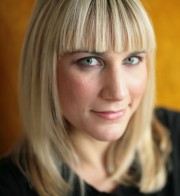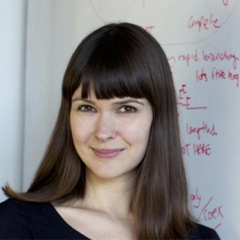The Open Bioinformatics Foundation is participating in the Google Summer of Code 2016 program, and last Friday the selected students were announced. Congratulations to all of you, and welcome. I also want to use this opportunity to thank all students who applied. Resources are limited and your proposals did not make it easy to select our finalists. We wish you all the best for your future endeavours, and hope to be able to work with you in future. The field of bioinformatics is a small one after all.
[Read More]BOSC CodeFest 2016
The Bioinformatics Open Source Conference (BOSC) is a two day meeting focused on open source bioinformatics. We aim to encourage and support a friendly, open and productive community that helps us work together to answer hard biological questions. We’ll get together this summer, July 8-9, in Orlando, Florida.
Abstracts for BOSC 2016 talks and posters are due this Friday, April 1st. We want to hear about your research and encourage everyone to submit an abstract. We love talks from newcomers to BOSC as well as established projects: no idea is too big or small. We also offer Travel Fellowships for speakers if money would be a barrier to attending.
[Read More]BOSC 2016 Keynote Speakers
We’re delighted to announce the keynote speakers for the Bioinformatics Open Source Conference, BOSC 2016:
Jennifer Gardy
Dr. Jennifer Gardy is both a scientist and science communicator. She holds a PhD in Bioinformatics, and is an Assistant Professor of Population and Public Health at the University of British Columbia and a Senior Scientist at the British Columbia Centre for Disease Control (BCCDC). At the BCCDC, she pioneered a new way of investigating outbreaks of infectious diseases – “genomic epidemiology”, which uses a pathogen’s genome sequence as a tool for understanding how an infectious disease spreads. Her group was the first to use genome sequencing to reconstruct a large outbreak of tuberculosis, and she is continuing to apply this novel technique to other outbreak scenarios. She is also involved in other genomics-related research, including replacing traditional laboratory microbiology protocols with single genomic analyses. In 2014, she was appointed the Canada Research Chair in Public Health Genomics, and is Senior Editor at the new open data, open access journal Microbial Genomics.
[Read More]BOSC 2016 Call for Abstracts
Call for Abstracts for the 17th Annual Bioinformatics Open Source Conference (BOSC 2016), a Special Interest Group (SIG) of ISMB 2016.
- Dates: July 8-9, 2016
- Location: Orlando, FL
- Web site: /wiki/BOSC_2016
- Email: bosc@open-bio.org
- BOSC announcements mailing list: http://lists.open-bio.org/mailman/listinfo/bosc-announce
- Twitter: @OBF_BOSC and @OBF_News
Important Dates:
- Call for one-page abstracts opens: March 1, 2016
- Abstract submission deadline: April 1, 2016 - extended to Monday 4 April 2016
- Travel fellowship application deadline: April 15, 2016
- Authors notified: May 6, 2016
- Codefest 2016: July 6-7, 2016, Orlando, FL (confirming venue)
- BOSC 2016: July 8-9, 2016, Orlando, FL
- ISMB 2016: July 8-12, 2016, Orlando, FL
The Bioinformatics Open Source Conference (BOSC) is run as a two-day meeting before the annual ISMB conference. It is organized by the Open Bioinformatics Foundation (OBF), a non-profit group dedicated to promoting the practice and philosophy of open source software development and open science within the biological research community. BOSC offers a focused environment for developers and users to interact and share ideas about standards; software development practices; practical techniques for solving bioinformatics problems; and approaches that promote open science and sharing of data, results and software.
[Read More]Biopython 1.66 released
Source distributions and Windows installers for Biopython 1.66 are now available from the downloads page on the official Biopython website and from the Python Package Index (PyPI).
This release of Biopython supports Python 2.6, 2.7, 3.3, 3.4 and 3.5, although support for Python 2.6 is now deprecated. It has also been tested on PyPy 2.4 to 2.6, PyPy3 version 2.4, and Jython 2.7.
Further work on the Bio.KEGG and Bio.Graphics modules now allows drawing KGML pathways with transparency.
BOSC 2015 Panel - increasing diversity
Every year, BOSC includes a panel discussion that offers all attendees the chance to engage in conversation with the panelists and each other. Two months ago we announced the theme of the BOSC 2015 panel would be " Open Source, Open Door: increasing diversity in the bioinformatics open source community". Our complete list of panellists is:
- Panel chair Mónica Muñoz-Torres ( @monimunozto) is the lead biocurator at Berkeley Bioinformatics Open-Source Projects (BBOP). She is part of the development teams for Web Apollo (a web-based annotation editor designed to support community-based curation of genomes) and the tools of the Gene Ontology (GO) Consortium. She co-leads the Community Curation group within the global initiative to sequence and annotate the genomes of 5,000 arthropods (i5K Initiative), and is a member of the Executive Committee of the International Society for Biocuration (ISB). As a graduate student, Monica founded the first Southeastern Chapter of the Society for Advancement of Hispanics/Chicanos and Native Americans in Science (SACNAS) at Clemson University; the chapter has since been actively involved in outreach activities to local high schools in an attempt to inspire students to pursue careers in STEM. She is currently working on forming the first professional chapter of SACNAS in the San Francisco Bay area.
- Holly Bik ( @hollybik) is a Birmingham Fellow (assistant professor) in the School of Biosciences at the University of Birmingham, UK. Her research uses high-throughput environmental sequencing approaches (rRNA surveys, metagenomics) to explore biodiversity and biogeographic patterns in microbial eukaryote assemblages, with an emphasis on nematodes in marine sediments. Through active collaborations with computer scientists and participation in software development projects, her long-term research aims to address existing bottlenecks encountered in –Omic analyses focused on microbial eukaryotes.
- Michael R. Crusoe ( @biocrusoe) is the lead for the k-h-mer project at C. Titus Brown’s Lab for Data Intensive Biology at the University of California, Davis in the School of Veterinary Medicine. A community-minded bioinformatics research software engineer and Software Carpentry instructor, he is also a member of the Debian Med software packaging team. Michael’s social justice background includes a prior seat on the board for the Phoenix, Arizona chapter of GLSEN, the Gay, Lesbian, and Straight Education Network and he is proud to be a supporter of the Ada Initiative.
- Aleksandra Pawlik ( @aleksandrana) is a Training Lead at the Software Sustainability Institute at Manchester University, UK. She coordinates training activities and helps develop strategies and curricula for teaching computational lab skills to researchers across disciplines at all stages of their research career. She is a member of the Steering Committees for Data Carpentry and Software Carpentry Foundation, and supports the development of both initiatives. Currently, Aleksandra is collaborating on training with the ELIXIR project supporting the bioinformatics community. As a certified Software and Data Carpentry instructor Aleksandra has taught at a number of workshops, including Software Carpentry for Women in Science and Engineering, which she co-organised.
- Jason Williams ( @JasonWilliamsNY) is the Lead of the iPlant Collaborative’s Education, Outreach, Training (EOT) group, based at Cold Spring Harbor Laboratory, where he has worked for over 10 years. He is also a Lead Instructor of “The Science Institute” at Yeshiva University High School for Girls, and the Treasurer of the Software Carpentry Foundation. His background is in molecular biology and bioinformatics. Diversity is a focus of Jason’s work at the DNA Learning Center and with iPlant, where he works to target outreach along the entire spectrum of underrepresented and underserved groups ranging from minorities in urban communities to first-generation college students at rural institutions.
In addition the BOSC 2015 co-chairs Nomi Harris and Peter Cock will be on hand, along with other Open Bioinformatics Foundation (OBF) Board Members and BOSC organising committee members, to comment on what BOSC and the OBF are trying to do to improve diversity in the open source bioinformatics community, and listen to suggestions.
[Read More]Open Source, Open Door: increasing diversity in the bioinformatics open source community
The Bioinformatics Open Source Conference (BOSC) has always been about community. Launched in 2000, BOSC aims to provide a forum for both bioinformatics developers and users to share ideas and code and learn about the latest developments in open source bioinformatics and open science.
Our goal this year is to welcome even greater participation, opening the door even wider to participants who have historically been underrepresented in the world of open source bioinformatics and, therefore, at BOSC. This includes (but is by no means limited to) women, people who aren’t white, older people, people from outside North America and Europe, and non-programmers.
[Read More]BOSC 2015 Keynote Speakers
Announcing the keynote speakers for the Bioinformatics Open Source Conference, BOSC 2015:
Holly Bik
 Dr Holly Bik is a Birmingham Fellow (assistant professor) in the School of Biosciences at the University of Birmingham, UK. She obtained her Ph.D. in molecular phylogenetics at the University of Southampton, UK (working in conjunction with the Natural History Museum, London), followed by subsequent postdoctoral appointments at the Hubbard Center for Genome Studies at the University of New Hampshire and the UC Davis Genome Center.
Dr Holly Bik is a Birmingham Fellow (assistant professor) in the School of Biosciences at the University of Birmingham, UK. She obtained her Ph.D. in molecular phylogenetics at the University of Southampton, UK (working in conjunction with the Natural History Museum, London), followed by subsequent postdoctoral appointments at the Hubbard Center for Genome Studies at the University of New Hampshire and the UC Davis Genome Center.
BOSC 2015 call for Abstracts
Call for Abstracts for the 16th Annual Bioinformatics Open Source Conference (BOSC 2015), a Special Interest Group (SIG) of ISMB/ECCB 2015.
- Dates: 10-11 July, 2015
- Location: Dublin, Ireland
- Web site: /wiki/BOSC_2015
- Email: bosc@open-bio.org
- BOSC announcements mailing list
- Twitter: @OBF_BOSC and @OBF_News
Important Dates:
- March 24, 2015: Registration opens for ISMB and BOSC ( https://www.iscb.org/ismbeccb2015-registration)
- April 3, 2015: Deadline for submitting BOSC abstracts
- May 3, 2015: Notification of accepted talk abstracts emailed to authors
- July 8-9, 2015: BOSC Codefest 2015, Dublin
- July 10-11, 2015: BOSC 2015, Dublin
- July 10-14, 2015: ISMB/ECCB 2015, Dublin
The Bioinformatics Open Source Conference (BOSC) covers the wide range of open source bioinformatics software being developed, and encompasses the growing movement of Open Science, with its focus on transparency, reproducibility, and data provenance. We welcome submissions relating to all aspects of bioinformatics and open science software, including new computational methods, reusable software components, visualization, interoperability, and other approaches that help to advance research in the biomolecular sciences. We particularly wish to invite those who have not participated in previous BOSCs to join us this year!
[Read More]Sadly OBF not accepted for GSoC 2015
Last year’s Google Summer of Code 2014 was very productive for the OBF with six students working on Bio* and related bioinformatics projects. We applied to be part of GSoC 2015, but unfortunately this year were not accepted.
Google’s program is enormously popular, and over-subscribed, meaning Google has had to rotate organisation membership. The OBF is grateful to have been accepted in 2010, 2011, 2012 and 2014. This year any participation will be down to individual projects to find a willing umbrella group from the organisations accepted for GSoC 2015. For example, a Biopython project was included under NESCent for GSoC 2013.
[Read More]
![[BOSC Logo]](/w/images/b/b0/Pear.png)
![[ISMB 2016 logo]](https://news.obf.io/wp-content/uploads/2016/03/ismb2016.png)
